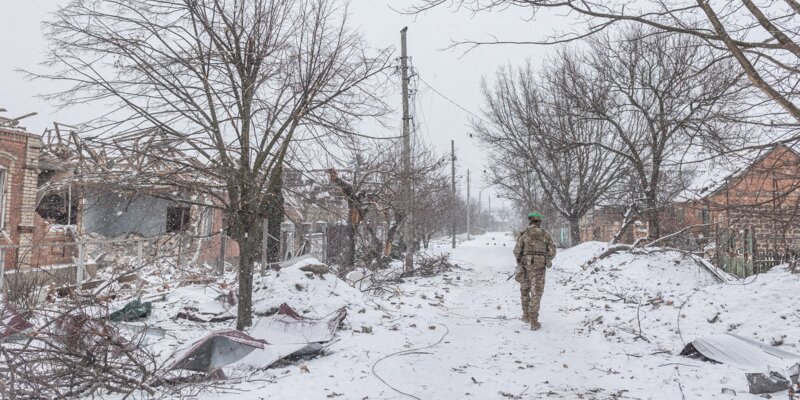Exposé: The Palestinian Tycoon Being Touted as Gaza’s Post-War Governor
A Palestinian businessman and former government official from Ramallah could be appointed governor of the Gaza Strip once the war ends. The prospective appointment of Samir Hulileh is being advanced through efforts involving the Trump administration, talks with Saudi and Egyptian officials, and even an ex-Israeli lobbyist operating from Canada. The plan: “No remnants of Hamas or Islamic Jihad,” alongside more than $50 billion in investment. “We have identified Gulf states willing to invest,” Hulileh told Shomrim. Published also in Yediot Aharonot and Ynet
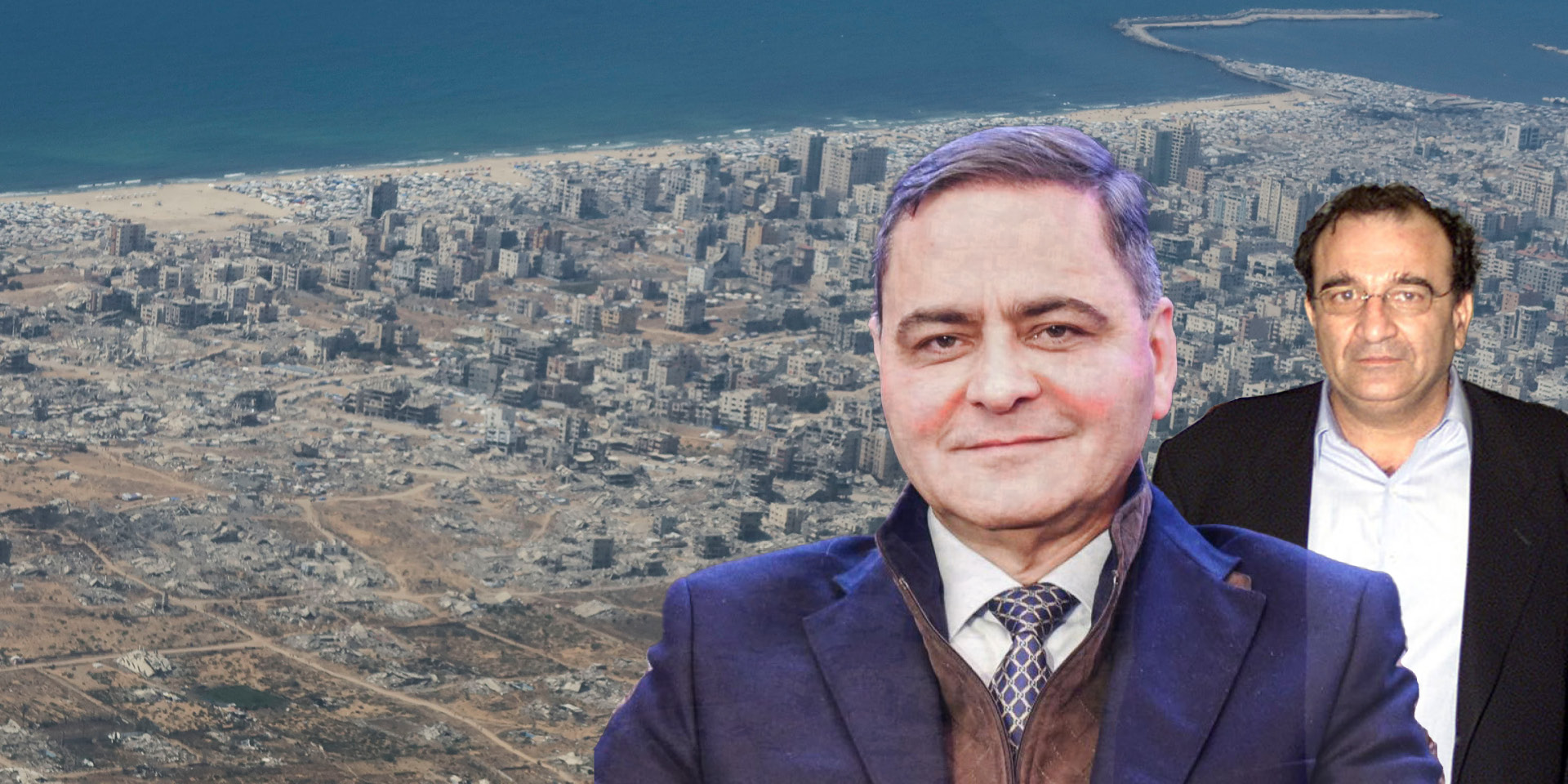

A Palestinian businessman and former government official from Ramallah could be appointed governor of the Gaza Strip once the war ends. The prospective appointment of Samir Hulileh is being advanced through efforts involving the Trump administration, talks with Saudi and Egyptian officials, and even an ex-Israeli lobbyist operating from Canada. The plan: “No remnants of Hamas or Islamic Jihad,” alongside more than $50 billion in investment. “We have identified Gulf states willing to invest,” Hulileh told Shomrim. Published also in Yediot Aharonot and Ynet

A Palestinian businessman and former government official from Ramallah could be appointed governor of the Gaza Strip once the war ends. The prospective appointment of Samir Hulileh is being advanced through efforts involving the Trump administration, talks with Saudi and Egyptian officials, and even an ex-Israeli lobbyist operating from Canada. The plan: “No remnants of Hamas or Islamic Jihad,” alongside more than $50 billion in investment. “We have identified Gulf states willing to invest,” Hulileh told Shomrim. Published also in Yediot Aharonot and Ynet
Samir Hulileh and Ari Ben-Menashe behind him, against the backdrop of the currently destroyed Gaza Strip. Photos: Reuters, Hulileh's photo from his Facebook page - use according to Section 27A of the Copyright Law

Uri Blau
August 12, 2025
Summary


Listen to a Dynamic Summary of the Article
Created using NotebookLM AI tool
Over the past several months, behind-the-scenes efforts have been underway to appoint Samir Hulileh – a leading Palestinian businessman – as the new governor of the Gaza Strip. Conversations that Shomrim has conducted with officials involved in the issue, as well as documents that have been submitted to the U.S. Justice Department, suggest that the effort is focusing on the appointment of an individual who would operate under the auspices of the Arab League, would be acceptable to both the United States and Israel and would provide a solution to the vexed question of who will control Gaza when the war finally ends. Among those pushing for Hulileh to be this individual is a controversial lobbyist called Ari Ben-Menashe, an Israeli expat now working in Canada. According to Ben-Menashe, the initiative has gathered momentum over the past few weeks, in part due to meetings held on the matter in the United States and Hulileh’s own contacts with officials in Egypt.
Hulileh, who lives in Ramallah, is an economist by training and a well-known figure in the political and business sectors of the Palestinian Authority. His resumé includes several senior positions in the PA, as well as diverse business interests. In 2005, he was appointed secretary general of the Palestinian government. His career also includes serving as Assistant Undersecretary of the Ministry of Economy and Trade as well as holding key leadership positions in the private sector. He was the CEO of PADICO, the largest holding company in the Palestinian Authority, chairman of the Palestinian stock exchange and chairman of the board for the Palestinian Economic Policy Research Institute. He also served on the board of the Palestinian Chamber of Commerce. He is considered a close associate of Bashar al-Masri, the Palestinian-American billionaire behind the establishment of the Palestinian city of Rawabi and someone with close ties to the Trump administration.
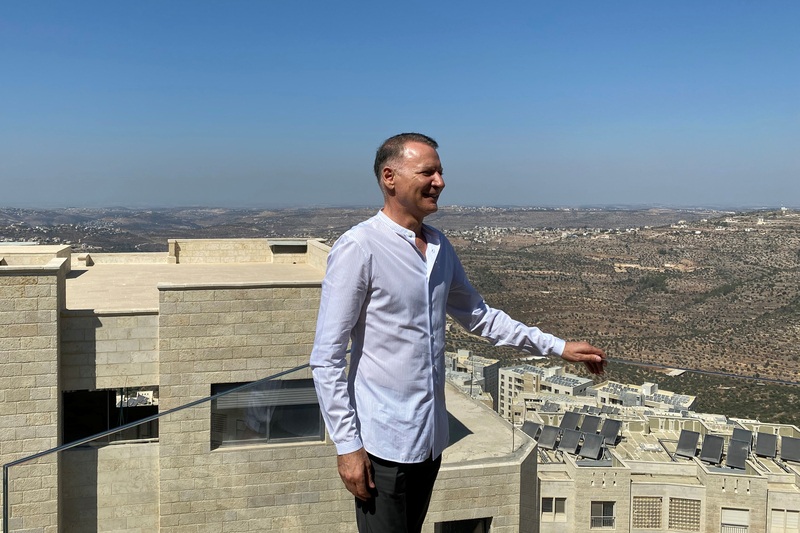
According to documents submitted to the U.S. Justice Department, Ben-Menashe registered as a lobbyist on Hulileh’s behalf several months ago; the stated goal of the campaign is to influence American decision-makers to advance his candidacy for governor of Gaza. The basic assumption behind the initiative is that all of the parties involved would prefer Gaza to be governed by a Palestinian figure, operating with the support of the United States and the Arab League.
The initiative was first launched last year, during the final months of President Joe Biden’s term, but only gained momentum when Trump entered the White House. Separate documents, submitted just last week to the Justice Department, state that Ben-Menashe discussed the matter with, among others, officials in Qatar, Saudi Arabia and Egypt.
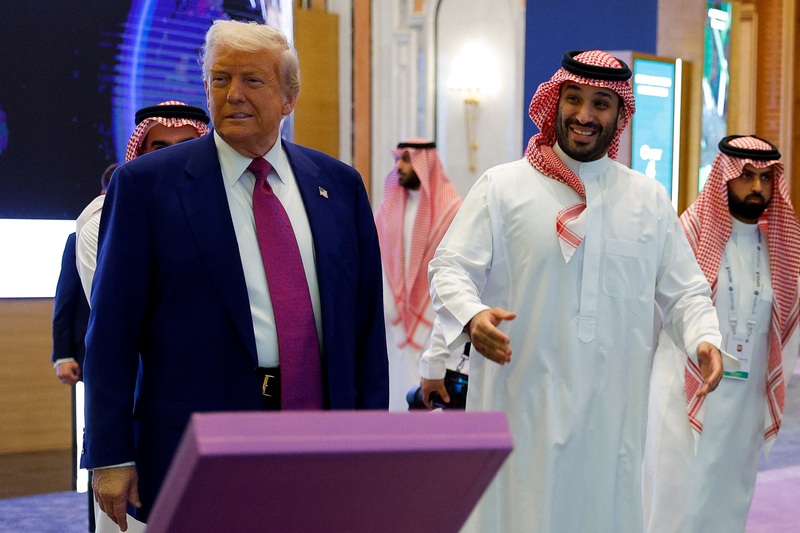
According to Hulileh calculations, a total of $53 billion is needed to rebuild Gaza. “We have identified those Gulf States that are willing to invest, but we also need the United States and the European Union to put significant sums in.”
Backed by the Saudis, Egypt and the Arab League
Ben-Menashe is a former Israeli who was born in Iran and served in the Israeli intelligence forces. He is a colorful character whose name has been mentioned in several news reports over the years. He was allegedly involved in the Iran-Contra Affair in the 1980s; he was charged in the United States but subsequently acquitted. He emigrated first to Australia and then to Canada and claims that he worked for the Mossad and for Prime Minister Yitzhak Shamir – claims that Israel has officially denied. Since registering as a lobbyist in the United States, his client list has included former Zimbabwean President Robert Mugabe and the military junta in Myanmar. According to documents Ben-Menashe submitted to the Justice Department, his current client list includes the governments of Kyrgyzstan, Congo and Vanuatu, as well as the president of Burkina Faso and the military regime in Sudan.
In a conversation with Shomrim, Ben-Menashe confirmed the initiative to appoint Hulileh governor of Gaza, explaining that it was something he believed was important and was not just a business issue. “It’s good for the Jews,” he said. He added that the issue is being advanced at the highest levels of the U.S. administration and there is hope that Hulileh will operate under the auspices of the Arab League – especially Egypt and Saudi Arabia. This would overcome Israeli objections to the official presence of the Palestinian Authority in Gaza.
Ben-Menashe says that, over the past few weeks, there has been significant progress on the matter, but has declined to provide details. Documents he submitted in the United States state that the plan includes the deployment of American and Arab forces in Gaza, United Nations recognition of Gaza’s special status, leasing of Egyptian land in order to build a seaport and airport in the Sinai and drilling rights for the gas fields off the coast of the Strip.
When Shomrim spoke last week to Hulileh – who was in Jordan at the time – he sounded a little more reserved. He says that Ben-Menashe was behind the initiative, that he came from Canada to meet him and explain the proposal, which Hulileh accepted. Asked who was funding the lobbying activity in the United States, Hulileh replied that “money was never the problem here,” adding that he had already paid Ben-Menashe $130,000 to promote the idea. It is worth noting that the official contract between Hulileh and Ben-Menashe is for a total of around $300,000.
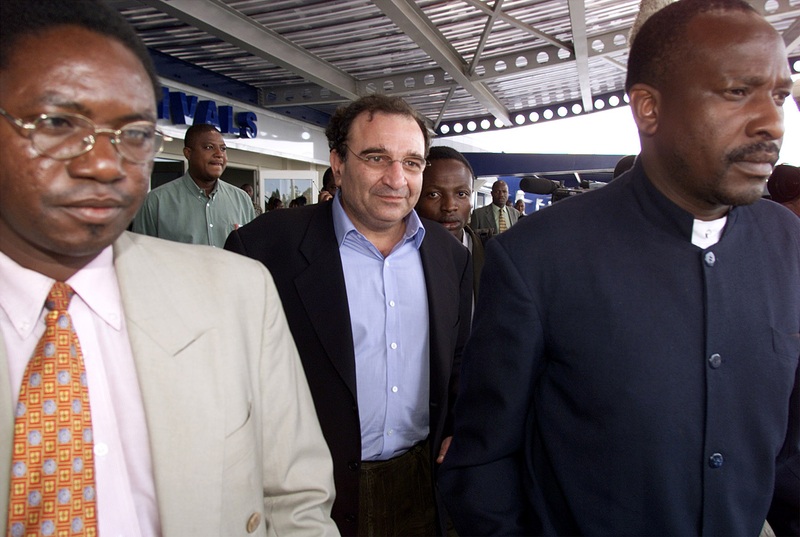
Asked who was funding the lobbying activity in the United States, Hulileh replied that “money was never the problem here,” adding that he had already paid Ben-Menashe $130,000 to promote the idea.
No ‘remnants of Hamas or Islamic Jihad’
According to Hulileh, the first step that is needed to promote the initiative is for both sides to agree to a permanent cease-fire and for the war to end. “Only then can we start talking about the day after,” he says. When that happens, he sees himself as someone who can act as “project director” for the rebuilding of Gaza. His plans include “bringing in huge quantities of aid, at least 600 to 1,000 trucks a day, and opening at least four or five free crossings for goods, which Israel will not be able to restrict.”
At the same time, he adds, law and order must be restored to Gaza. “People have to feel that there is an authority in Gaza – not the Palestinian Authority or Hamas, but someone that they have to respect.” He says that Gaza cannot be full of weapons – what he called the “remnants of Hamas or Islamic Jihad” – since residents must be able to feel safe in their homes.
The next stage of rebuilding Gaza, according to Hulileh, will be a massive financial investment. According to his calculations, a total of $53 billion is needed to rebuild the territory. “We have identified those Gulf States that are willing to invest, but we also need the United States and the European Union to put significant sums in.”
Hulileh reiterates, however, that nothing will happen until the war ends, but there is also a note of optimism in his voice. In the past few days, he says, it seems that Israel has expressed a willingness for the first time to talk about the end of the war and not just a temporary cease-fire – something that has been coordinated with Washington. Hulileh, it seems, is encouraged by comments ofTrump’s special Middle East envoy, Steve Witkoff, who said last week in a meeting with relatives of the Israeli hostages being held in Gaza that “the plan is not to expand the war, but to end it. We have to shift this negotiation to ‘all or nothing.’ Everybody comes home. And we think it’s going to be successful, and we have a plan around it.”
After Shomrim’s conversation with Hulileh, the Israeli security cabinet voted – against the position of the IDF and the security establishment – to approve a plan for the full conquest of the Gaza Strip and the relocation of Gazans to defined areas. Only time will tell whether this is a genuine plan of action or merely an effort to put pressure on Hamas. However, it is already clear that some people – especially in Washington – are already preparing the ground in Gaza for the day after the war.






